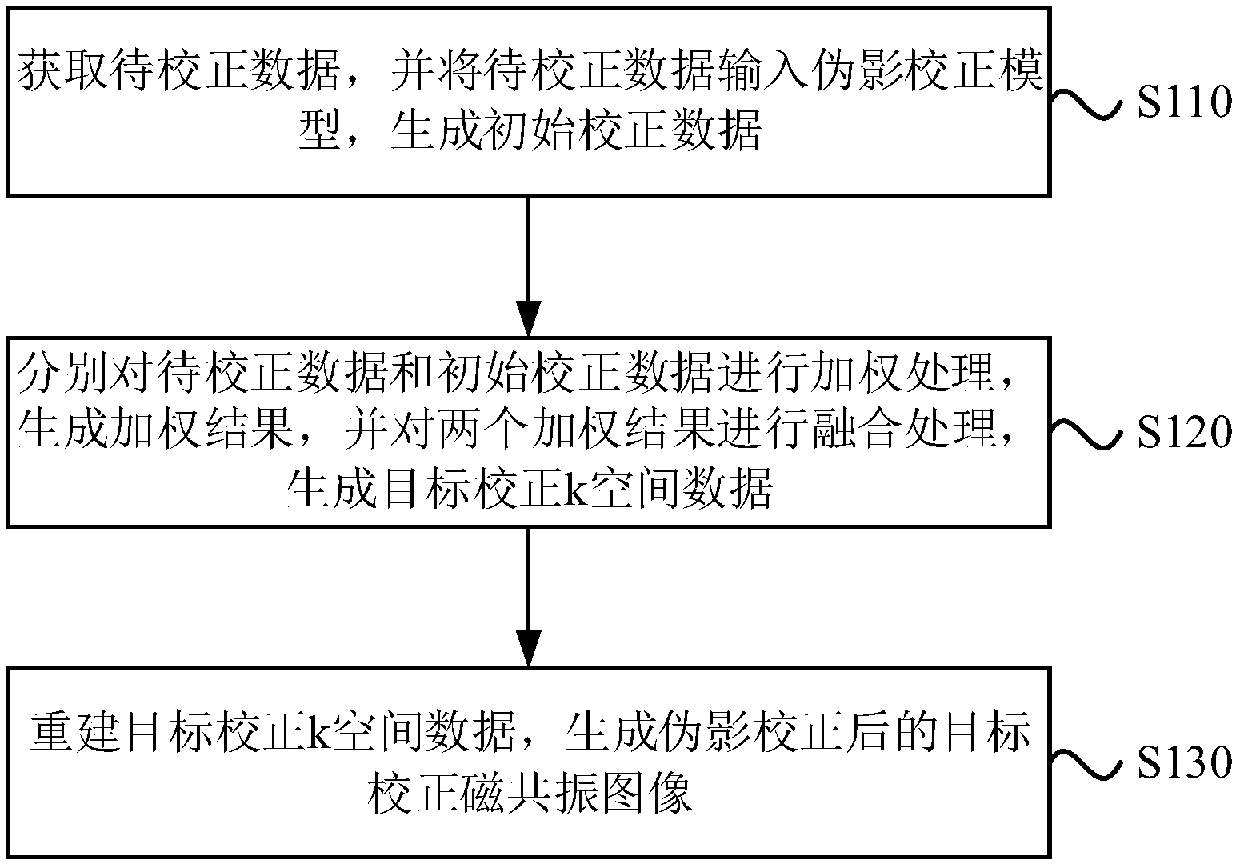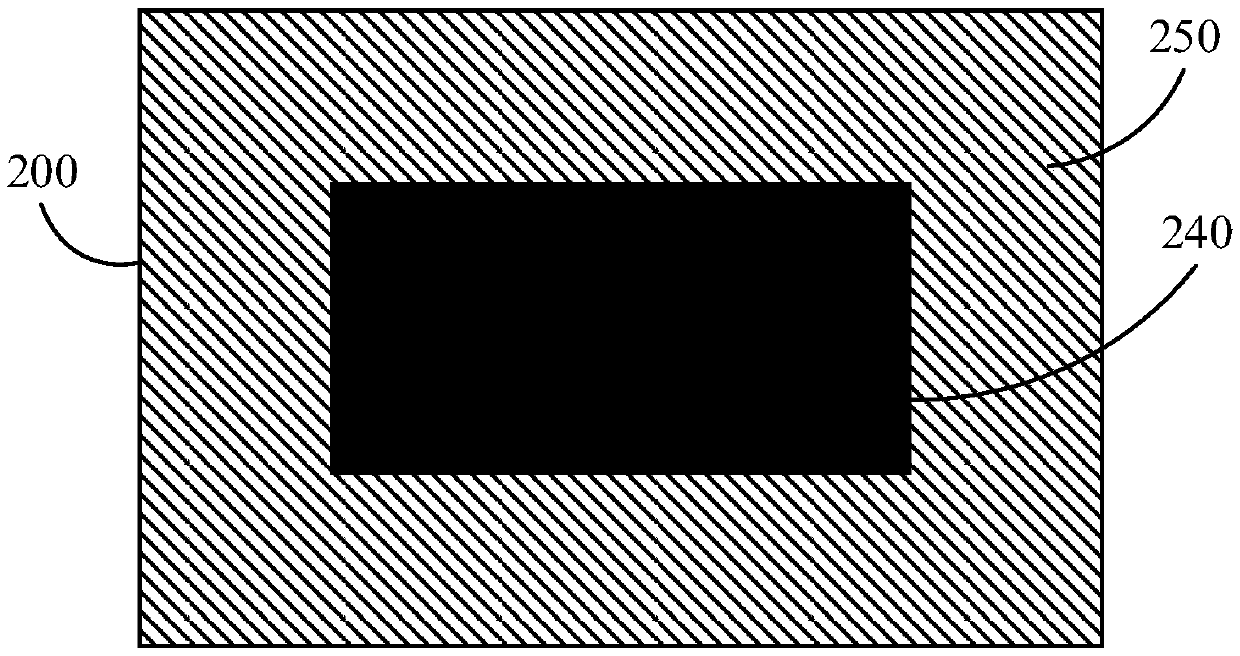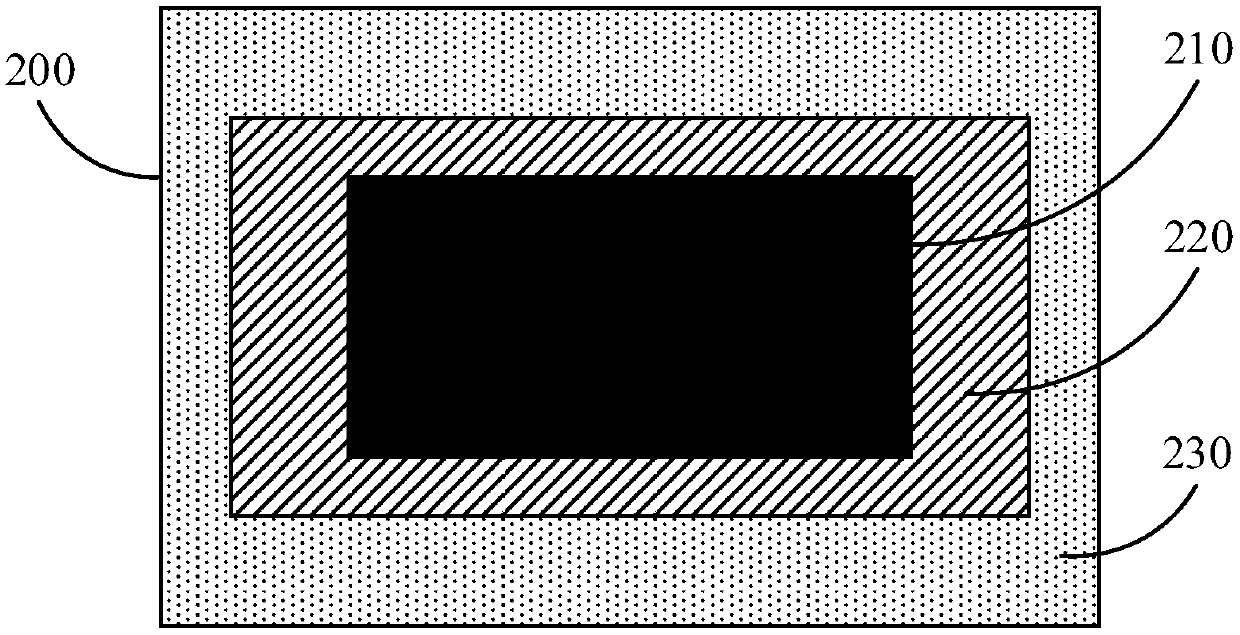Magnetic resonance image processing method and device, storage medium and magnetic resonance imaging system
A magnetic resonance image and processing method technology, applied in the field of medical image processing, can solve the problems of difficult control of restraint, unnatural details of magnetic resonance images, poor mosaic effect suppression effect, etc., to improve the degree of suppression and correct artifacts good effect
- Summary
- Abstract
- Description
- Claims
- Application Information
AI Technical Summary
Problems solved by technology
Method used
Image
Examples
Embodiment 1
[0030] In the process of magnetic resonance imaging, due to the absence of high-frequency components in k-space, serious Gibbs artifacts will be generated in the final image. The magnetic resonance image processing method provided in this embodiment can be applied to the artifacts in magnetic resonance images. Shadow correction, especially suitable for reducing Gibbs artifacts or truncation artifacts in magnetic resonance images. The method can be executed by a magnetic resonance image processing device, which can be realized by software and / or hardware, and which can be integrated in a device with image processing functions, such as a notebook computer, a desktop computer or a server. see figure 1 , the method of this embodiment specifically includes the following steps:
[0031] S110. Acquire the data to be corrected, and input the data to be corrected into the artifact correction model to generate initial correction data.
[0032] Among them, the collection of data to be ...
Embodiment 2
[0049] In this embodiment, on the basis of the foregoing embodiments, "generate the first weight matrix and the second weight matrix according to the preset weight value distribution rule" is added. On this basis, it is also possible to further optimize the "weighting processing on the data to be corrected and the initial corrected data respectively to generate a weighted result". The explanations of terms that are the same as or corresponding to the above-mentioned embodiments will not be repeated here. see Figure 3A , the magnetic resonance image processing method provided in this embodiment includes:
[0050] S210. Acquire data to be corrected, and input the data to be corrected into the artifact correction model to generate initial correction data.
[0051] Such as Figure 3B is a schematic diagram of an exemplary artifact correction model described according to some embodiments of the present application. The artifact correction model may adopt a neural network model...
Embodiment 3
[0074] This embodiment provides a magnetic resonance image processing device, see Figure 4 , the device specifically includes:
[0075] The initial correction data generation module 410 is used to obtain the data to be corrected, and input the data to be corrected into the artifact correction model to generate initial correction data, wherein the artifact correction model is obtained based on the pre-training of the neural network model, and k corresponding to the initial correction data The space includes more high-frequency components than the k-space corresponding to the data to be corrected;
[0076] The weighted fusion module 420 is used to perform weighted processing on the data to be corrected and the initial corrected data respectively, generate a weighted result, and perform fusion processing on the two weighted results to generate target corrected k-space data;
[0077] A reconstruction module 430, configured to reconstruct target-corrected k-space data, and genera...
PUM
 Login to View More
Login to View More Abstract
Description
Claims
Application Information
 Login to View More
Login to View More - R&D
- Intellectual Property
- Life Sciences
- Materials
- Tech Scout
- Unparalleled Data Quality
- Higher Quality Content
- 60% Fewer Hallucinations
Browse by: Latest US Patents, China's latest patents, Technical Efficacy Thesaurus, Application Domain, Technology Topic, Popular Technical Reports.
© 2025 PatSnap. All rights reserved.Legal|Privacy policy|Modern Slavery Act Transparency Statement|Sitemap|About US| Contact US: help@patsnap.com



